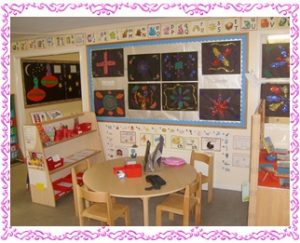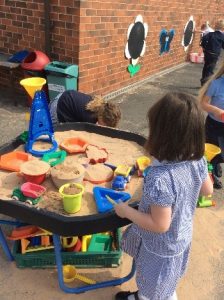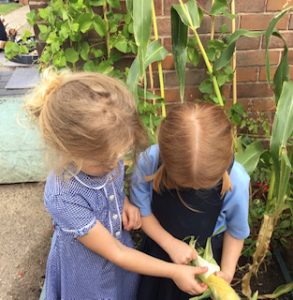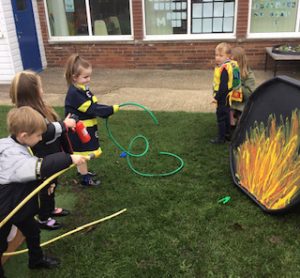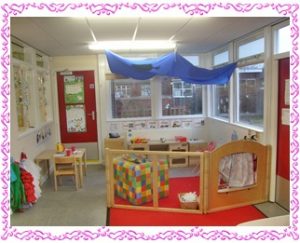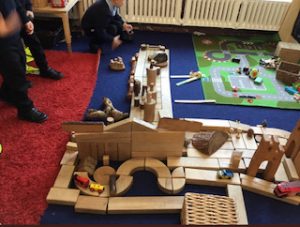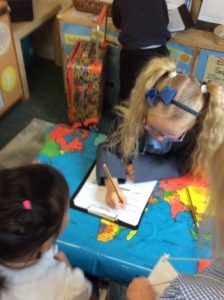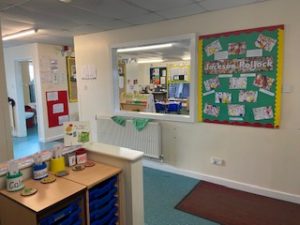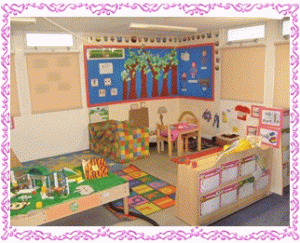EYFS
Our Early Years Foundation Stage includes our Nursery (Lower Foundation Stage) for children aged 3 to 4 years and our Reception (Upper Foundation Stage) for children aged 4 to 5 years.
From September 2023 we will only be running a morning Nursery session, as the afternoon sessions are ‘paused’ due to low pupil intakes.
Unfortunately we are will therefore be unable to offer or be open to applications for 30 hours places in Nursery to 3 and 4 year olds from September.
We are committed to helping our children become independent, life-long learners with the knowledge and skills they need in all subjects. We are developing a progressive, skill based curriculum
with opportunities for the children to learn and excel in both academic and non-academic subjects.
Before your child joins us in Nursery or Reception class we ask that you help them to complete the ‘All About Me’ document. This helps us to find out information about your child’s interests, hobbies and important people in their lives.
Early Years Foundation Stage
Colorado Class, Reception (Upper Foundation)
The staff working in Reception are;
- Mrs. Mehat – Reception Teacher
- Mrs Weston – Learning Support
Thames Class, Nursery (Lower Foundation)
The staff in Nursery are;
- Mrs J Jones – Class Teacher
- Mrs Jones – Nursery Nurse
- Mrs Gill – Learning Support
- Mrs Palmer – Learning Support
What does the Early Years Foundation Stage look like at Sharlston Community School?
At Sharlston Community School we know that children bring their own very unique experiences and interests into our school and we believe that it is our role to bring these out and to develop them even further. We understand that children develop from different starting points and will be working at different stages to one another in the early years and we believe that our curriculum celebrates this.
The Curriculum
We offer a personalised curriculum that follows the interests of each individual. We know that children learn best when they are given practical and first-hand experiences.
The ways in which your child engages with other people and the environment playing and exploring, active learning and creating and thinking critically underpin learning and development across all areas and support the children to remain an effective and motivated learner.
The curriculum delivered in the Early Years Foundation Stage focuses on 7 areas of learning. These are divided into 3 Prime areas of learning, and 4 specific areas of learning.
The Prime Areas of Development
- Communication and Language development involves giving children opportunities to experience a rich language environment; to develop their confidence and skills in expressing themselves; and to speak and listen in a range of situations.
- Physical Development involves providing opportunities for young children to be active and interactive; and to develop their co-ordination, control, and movement. Children must also be helped to understand the importance of physical activity, and to make healthy choices in relation to food.
- Personal, Social and Emotional Development involves helping children to develop a positive sense of themselves, and others; to form positive relationships and develop respect for others; to develop social skills and learn how to manage their feelings; to understand appropriate behaviour in groups; and to have confidence in their own abilities.
 The Specific Areas of Development
The Specific Areas of Development
- Literacy development involves encouraging children to link sounds and letters and to begin to read and write using our Little Wandle Phonics programme. Children are given access to a wide range of reading materials (books, poems, and other written materials) to ignite their interest.
- Mathematics involves providing children with opportunities to develop and improve their skills in counting, understanding and using numbers, calculating simple addition and subtraction problems; and to describe shapes, spaces, and measures.
- Understanding the world involves guiding children to make sense of their physical world and their community through opportunities to explore, observe and find out about people, places, technology and the environment.
- Expressive arts and design involves enabling children to explore and play with a wide range of media and materials, as well as providing opportunities and encouragement for sharing their thoughts, ideas and feelings through a variety of activities in art, music, movement, dance, role-play, and design and technology.

